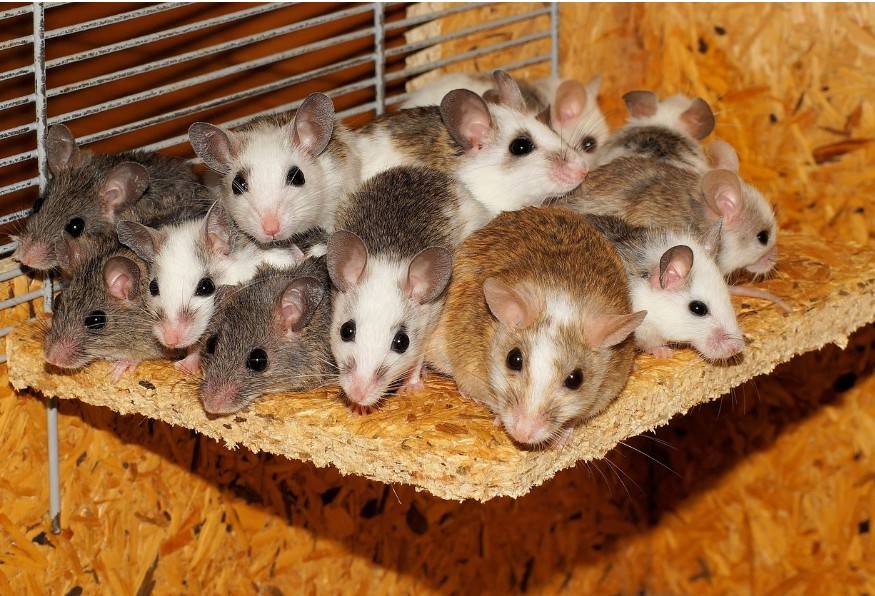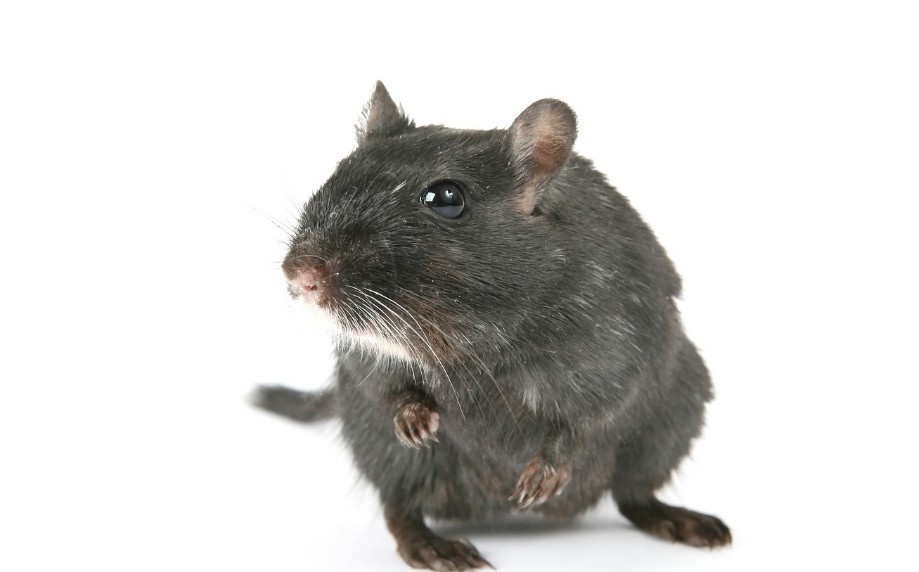Are Mice Nocturnal? All About Mice Behavior and More
If you heard scratching noises in your walls at night or found tiny footprints in your house, you may have wondered: Are mice nocturnal? Well, yes, mice are nocturnal animals, meaning they are most active at night. This guide will teach you about these sneaky, nocturnal rodents. We’ll cover how to spot a mouse infestation and how to keep them out of your home for good
Summary
- Mice are nocturnal, active mostly at night, and adapted to low-light conditions.
- They use their sense of smell and whiskers to navigate and find food.
- Signs of an infestation include:
- Droppings
- Gnaw marks
- Noises at night
- Greasy footprints or streaks
- Nests
- To prevent infestations:
- Keep your home clean
- Use rodent-proof containers
- Seal entry points
- Set traps
- Mice can fit through small openings (as small as a quarter).
- Sealing cracks and gaps is essential to prevent entry.
- Mice are nocturnal to avoid daytime predators like owls and hawks.
What Does Nocturnal Mean for Mice?
By nocturnal, we mean mice prefer nighttime activities to daylight hours. Mice are not just avoiding humans by being active at night. They are adapted to the dark. They rely on their keen sense of smell and hearing. In the wild, mice keep very small territories, and they roam these mainly at night. This places them in a better position to avoid predators.
Urban cities house common, night-active mice. They tend to leave, under cover of darkness, to seek food and water. However, a variation of the mice, called field mice, lives outside rural areas. They are mostly nocturnal but are often seen scavenging at dusk and dawn.
Why Mice are Nocturnal?
Mice are nocturnal creatures and naturally more active at night. Nocturnal behavior protects them from predators. Many of their enemies, like owls and hawks, are day-active. The night also provides a safer place to look for food and build nests. Mice depend a lot on their sense of smell and whiskers, which act like tactile sensors, to navigate in the dark and find their way around.
But don’t be fooled—just because they’re more active at night doesn’t mean you can’t spot them. Mice are incredibly stealthy and know how to hide during the day. Still, there are several signs you can look for to determine if your home has become a mouse-infested space.
Signs You Might Have Mice in Your Home

Mice are hard to catch since they are most active during the night. Nevertheless, there are a few symptoms that can make you certain of whether or not you have a mouse infestation in your home:
Mouse Droppings: Tiny black pellets left behind near food sources, along baseboards, or in hidden areas are one of the most common signs of mice. If you notice mouse pee, which often accompanies droppings, you’ll want to act fast.
Gnaw Marks: Mice have to constantly gnaw on things to wear their teeth down so that they don’t get too long. You may discover tiny, ragged gnaw marks on cardboard boxes, food packages, or wooden furniture.
Noises at Night: Mice are nocturnal. You might hear scratching, scurrying, or squeaking sounds from your attic, walls, or behind your kitchen appliances at night.
Greasy Footprints or Streaks: Mice have oily fur, so they leave greasy streaks or footprints along their travel routes. These marks are often visible in areas like under the sink or along the walls.
Nests: Mice build nests out of shredded paper, fabric, and other soft materials they find. If you notice small piles of these materials, it could be a sign that you have a mouse infestation.
If you see some of these signs, it’s time to check for entry points. Then, plan how to deal with the infestation.
How Can I Know I Have A Mice Infestation
An infestation can grow fast, so it is good to know the difference between a few random mice and a full-on rodent infestation. If you see multiple mice or signs of activity, you may have a mouse infestation. Look for frequent droppings, chewed items, or nesting. Here are a few ways to confirm:
Multiple sightings: If you see more than one mouse or catch them in traps on a regular basis, it is no longer a one-time visitor.
Visible nests: The presence of multiple nests or shredded material all over your house is a sure indication of an infestation.
Damage: Heavy gnawing on furniture or food suggests mice may live in your house.
What to Do When Mice Take Over Your Home

You spot some, think you’ve got a infestation – don’t be alarmed. There are different mouse-proofing methods, which could help eliminate their presence:
Seal Entrances and Exits Seal holes that are the width of a dime or two, even those around your windows and doors. Install caulk, steel wool, or mouse-proof materials to prevent mice from taking advantage of them.
Remove food sources: Mice are always hunting for food. Seal all the food in airtight containers and do not let crumbs fall on the ground. Clean up food spills right away.
Use Traps: Traps are the most common way of catching mice. There are several types, including snap traps, glue traps, and live traps. A combination of traps should be used and baited with foods that mice love such as peanut butter or sunflower seeds.
Use Natural Repellents: Some smells, such as peppermint oil, repel mice. You can place cotton balls soaked in peppermint oil in areas where you suspect mice will enter.
Call in Professional Pest Control: If your mouse problem seems to be getting out of hand, it may be time to call in the professionals. Professional pest control can assess the situation and take steps to get rid of mice effectively and safely.
Preventing Future Mouse Infestations

Once you’ve dealt with the mouse infestation, it’s important to take steps to keep them from returning. Preventative measures are key:
Maintain Cleanliness: Regularly vacuum and clean your house to ensure there are no crumbs or food scraps for mice to nibble on.
Use Rodent-Proof Containers: Store all food, including pet food, in sealed containers. This prevents attracting mice.
Inspect Your Home Often: Look for possible entries such as cracks or spaces around windows and doors; seal them immediately.
Catch Mice with Mouse Traps: Even with no infestation, set traps. They can catch invaders before they establish themselves.
Why Are Mice Considered Nocturnal Animals?
As discussed above, mice are nocturnal animals, meaning they are naturally adapted to live in low-light conditions. Mice rely heavily on their sense of smell and whiskers to detect food and navigate through their environment. These physical traits make them well-suited to life in the dark, where they’re less likely to encounter predators.
Additionally, many of the predators of mice, like owls and hawks, are daytime hunters. By staying active at night, mice avoid being spotted by these predators, making them more likely to survive and thrive. This is why you’ll often see house mice scurrying around your kitchen at night, searching for crumbs or nibbling on food.
Are Rats Nocturnal? Are Mice Nocturnal

It is easy to be confused between mice and rats as they are two different rodents with different behaviors. Are mice nocturnal? Yes, mice are strictly nocturnal animals, meaning they are most active at night. Mice are often the more adaptable rodents in a city. They are strictly nocturnal. Are mice nocturnal? Rats can be nocturnal, but they prefer to be active at dawn and dusk. Rats are generally larger than mice and can cause a tremendous amount of damage to your home or property. In both species, they find food sources such as garbage, stored food, and even pet food. But are mice nocturnal? Yes, they are, making them harder to spot during the day.
Do Mice Have Bones?
Yes, mice do have bones, but their skeletal structure is very flexible and lightweight, allowing them to fit through very tight spaces. Are mice nocturnal? Mice can squeeze through openings as small as a quarter. So, it’s vital to seal any cracks or gaps in your home to keep them out.
Why Mice Prefer the Night: A Deeper Look into Their Behavior

Mice are nocturnal animals. That means they were engineered to be active and thrive during night time. But why is it that mice nocturnal prefer being active at night? Well, here are some reasons for this activity. Maybe they can help explain how these animals live. They can also explain how they appear out of nowhere at night.
Protection from Predators
One of the major reasons mice nocturnal behavior is so prominent is due to the avoidance of predators. Mice are preyed upon by many animals like owls, hawks, foxes, and snakes. Such predators are mostly daytime active. The mouse has an edge at night. It can roam, scrounge for food, and make nests without the constant threat of being hunted.
Mice are also usually found close to the ground and tend to avoid open areas where predators can spot them. Their acute hearing and sense of smell allow them to sense danger. They retreat into the shadows, making night their ideal time to be active. The cover of darkness helps them feel safe, allowing them to go about their business with minimal fear of being caught.
Nighttime Is Their Feeding Time
Since mice nocturnal are opportunistic feeders, they will eat anything that they can find; hence, they make houses a great place to call home. This is often done at night when there is less human activity going on and when they have an even better chance of obtaining food. When you are asleep, your kitchen and pantry become the easiest locations that mice nocturnal can acquire food from. You may sometimes wake up to tiny marks on your cereal boxes or snack bags or even in open cans.
Because mice are nocturnal and small and quiet, they can go into places that larger animals or even humans cannot fit. This is why, if you don’t take preventive measures, you could find that a mouse has made your home its feeding ground while you’re asleep! They’re also able to scurry through tiny cracks, gaps, and vents that most other creatures can’t access, which is why you may not even know they’re there until it’s too late.
Privacy and Quiet
Mice nocturnal are extremely reclusive animals. They do not want to be seen or recognized by humans and want to remain hidden. Thus, night-time, when your house is quiet and silent, is the best time for them to perform their deeds. During the day, you move around your home. You interact with your pets and family. Mice tend to hide in their nests or burrows. They come out only when things settle down.
The quiet of night allows mice nocturnal to roam freely without the chance of being seen. The mice are sensitive to sounds and movements, so this quiet time at night leaves them with a safer area to scavenge for food and explore. It’s a time when they take advantage of the resources within your home without being bothered.
Thermoregulation
It is easier for mice nocturnal to roam around without overheating during night when temperatures have usually lowered. This is specially so in warmer climates whereby the midday sun could pose a risk of overheating and dehydration. When it is nighttime, the cool temperature makes it easy to be active.
Mice are more sensitive to extreme temperatures and their small bodies lose heat fast. They can therefore avoid the hottest parts of the day by being active at night and hence have a better chance of regulating their body temperature. This nocturnal activity is especially crucial in areas where daytime temperatures are particularly harsh.
Greater Foraging Opportunities
Mice nocturnal also seize the darkness of night to scavenge around for food. At such times, competition for these food sources would be numerous during the day from both other animals and humans; however, during the night, food is easily accessible as they can go through litter, sneak into kitchens or even nibble on foods left overnight by pets among others. The night darkness thus enables them to scrounge and store food during the night for survival in peace.
Optimal Nesting Conditions
Night is also the best time for mice nocturnal to find new nesting sites. Whether it’s inside your walls, under furniture, or in the attic, the night provides the cover they need to explore new spaces. They can find warm and safe spots away from humans and predators where they can settle in. This is why they are able to search for these spaces much more thoroughly during the stillness of night, which is why you may find nests hidden in places that seem almost impossible to reach.
Reproductive Advantage
Mice are also more active at night for mating. Their nocturnal habits allow them to seek out mates without attracting too much attention. The cover of darkness increases their chances of reproducing and spreading their species without predators or human interference. At night, mice nocturnal can engage in mating rituals or rear their young in the safety of darkness, making it easier to sustain their populations.
Understanding these reasons behind mice nocturnal behavior helps in better management and prevention of infestation. If you hear scratching noises at night or notice small signs of mice activity, it’s very important to take action right away to keep your home safe from these nocturnal invaders.
Signs You Have Mice in Your House: What to Look For
No doubt, you have listened to the night squeaks or seen pieces of paper and books mutilated by mice. Well, the point remains that, indeed, a mouse could have entered your house, so let us take it further into signs of finding out if one has been infesting you.
1. Scuttling in the walls and ceilings
When you notice a scratching or scurrying noise coming from the walls or ceiling at night, there is probably a mouse in there. Mice are very active at night. If there are gaps or cracks, you hear them scampering in the walls as they move about.
2. Unusual Droppings and Urine Stains
Mice are very active, so they leave behind lots of evidence of their presence. Their droppings are small, dark, and pellet-shaped. If you notice these around your kitchen, pantry, or hidden spots like under the fridge, it’s a sign that mice have been active in your home. You might also spot urine stains or smell a strong musky odor—both are typical signs of mouse activity.
3. Chewed Materials
Mice love to gnaw, and they’ll chew on anything they can find to keep their teeth from growing too long. This includes food packaging, furniture, electrical wires, and even books. If you find signs of chewed materials, especially in areas where mice can hide, it’s a definite indication that you have a rodent infestation.
4. Visible Tracks or Grease Marks
As mice run around your house at night, they leave visible marks such as grease marks or tracks. If mice keep running through the same pathways, they will leave oily smudges on the walls from their fur. These marks are normally seen along baseboards, under the sink, or on your kitchen counters.
5. Nests made of shredded paper and fabric
When mice come into your home, they will have to find some place to rest and nurture their offspring. They take any type of soft material, whether it’s shredded paper, fabric, insulation, or even a stuffed animal, to create nests. You might have seen these nests in hidden, out-of-the-way spots. They hint that the mice have come to roost.

What Brings Mice into Your House?
Mice are always looking out for food, water, and shelter. Some of the common things that attract mice to your home include:
1. Easy Access to Food
Just like us, mice need food to survive. Your kitchen is a goldmine for them, having crumbs of food, spilled grains, and an open trash can. The mice are crazy about whatever seeds to cereal, hence the smallest crumb in your house would attract these rodents. Therefore, your food must be sealed up in an airtight container and any spillages of food cleared immediately.
2. Warm and Dry Shelters
Mice are attracted to warm sheltered spots where they may build their nests and retreat from the weather. Places such as attics, basements, or even inside your walls tend to attract them more often. When it’s very cold outside, they’ll come inside to seek the warmth. Cardboard boxes, piles of clothing, or even loose insulation might make perfect nesting sites for mice.
3. Poor Home Maintenance
Mice can squeeze through incredibly small holes. If your home is not well-maintained, it can provide perfect entry points. Small cracks or holes around the windows, doors, as well as pipes, provide mice with an easy pathway to enter and settle into your home. Pest control services can seal entry points. This will stop unwanted critters from settling in your home.
4. Excess Moisture
Mice need water to survive, so if your home has leaky pipes, standing water, or open pet water bowls, it may attract them. Keeping your home dry and fixing any leaks can reduce the likelihood of mice being drawn to your space.
How to Keep Mice Out of Your Home: Effective Prevention Tips
If you have ever seen a mouse or fear infestation, you can Are Mice Nocturnal-proof your house to keep those rodents away from your house.
Seal all possible entry points.
First look at your house for potential entry sites. Mice can get through even the narrowest cracks, so ensure all cracks around windows, doors, and pipes are inspected. Use steel wool or rodent-proof sealant over any gaps. Ensure also that your chimney is sealed to prevent entry from the fireplace.
Clean Up and Remove Food Sources
A clean home is not as enticing to mice. Clean spillage food instantly, pack food in closed containers and ensure waste cans are well covered. Pets’ food should be well covered, as well as it attracts Are Mice Nocturnal invaders.
Use traps and baits
If you suspect you have Are Mice Nocturnal, traps are the best way to catch them. There are many types of traps—snap traps, live traps, and even electronic traps. Just be sure to place them in areas where Are Mice Nocturnal are likely to travel, such as along walls, near food sources, or behind appliances.
Call in the Experts
If all this has been done and still there’s a problem, then there’s time to consider seeking professional help in pest control services. Professional pest control services are best prepared for any pest control task type and gained much experience with this area. This will mean that you would have the solution that makes your home pest-free of Are Mice Nocturnal.
Conclusion
Mice are fascinating, but when they take your house over, they quickly become a pest. So, knowing they are nocturnal is important. Signs of an infestation, too, need to be identified. Lastly, you will need to mouse-proof your home. These can then prevent future issues.
Seal the entry points, remove the food sources, and call in the exterminators to keep the nocturnal mice at bay. Past infestations teach us how cunning they are. Keep vigilant and take precautions against these nocturnal invaders for the safety of your home. Vigilance is key in maintaining a mouse-free sanctuary.
If you notice the presence of mice nocturnal, contact us today. We can help with rodent problems. Our pest control services will keep your home safe from mice nocturnal activity and prevent future infestations.

